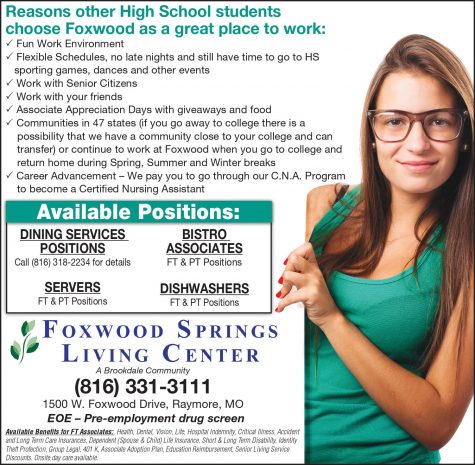Handling Unhealthy Friendships
December 31, 2021
Unhealthy friendships are very common in high school. People sometimes know how to handle them, sometimes people don’t.
Counselors are people to talk to about your unhealthy friendships and unhealthy relationship. Counselor Bethany Sylvester helps a lot of students with their unhealthy friendships.
“First step is to recognize the warning signs of an unhealthy friendship, then be open to communicating to your what it is that is bothering while ideally working together to come up with solutions. You can also seek out advice from adults to get opinions on how to handle a situation, reduce contact with that person, and ignore any attempts to hurt you via texts, email, Snapchat, or in person communication,” Sylvester said.
Students have their own ways to handle unhealthy friendships too. Senior Kyra Snelson stated some of the signs she found while in an unhealthy friendship.
“They would get mad at me for the littlest things, if I tried to be friends with someone else or try to hang out with other people they would get mad, there would be off days,” Snelson said.
Emma Shumway has had unhealthy friendships. She tries to not be in unhealthy friendships.
“I would most likely talk it out and if things don’t go well, then I will end the friendship,” Shumway said.
Unhealthy friendships have the chance to lead into arguments. Snelson shares what steps she takes to avoid an argument.

“Be straight up about everything, don’t lie, address that certain problem and don’t expand it and basically go at the problem and what the problem is,” Snelson said.
People say counselors give good advice about unhealthy friendships. Sylvester gives some advice she would give to a student in this situation.
“Make the choice to focus on your happiness and what you deserve. Everyone deserves to be treated with kindness, love, and mutual respect. Get additional support so you can get advice on what to do and encouragement. Be aware of the red flags and remember you can’t force your friend to do anything they are not willing to do themselves so recognize when it is time to distance yourself versus putting in more than effort than they would,” Sylveter said.
A lot of people like to address unhealthy friendships over text because they can look back at other conversations.
“Over text because it helps you be able to backtrack a lot more,” Shumway said.
In a counselor’s perspective, students need to know it is okay to talk about unhealthy friendships.
“I would say by bringing awareness to what the warning signs are and knowing what steps you can take to openly talk about an issue your having is the best way to encourage students to start having the conversation more openly,” Sylvester said.
In teenage years, people’s friendships start to become unhealthy or toxic. Teenagers need to know it is normal and okay to talk about their unhealthy friendships with a counselor or their friends.



